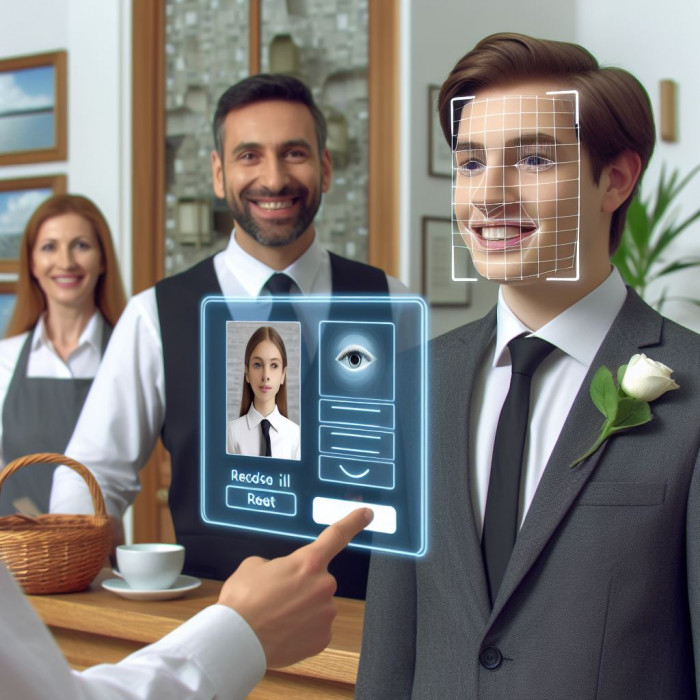
Introduction
The travel industry has experienced a dramatic transformation in recent years, largely driven by the rapid advancements in technology. From mobile apps to facial recognition, virtual reality, and artificial intelligence, technology has revolutionized the way we plan, book, and experience travel. These innovations have fundamentally changed the landscape of the travel industry, offering a host of benefits for both travelers and businesses.
Mobile apps, in particular, have emerged as indispensable tools for travelers. They have made it easier than ever to plan trips, book flights and hotels, and discover local attractions and restaurants. With personalized recommendations based on past travel history and preferences, mobile apps have transformed the travel experience, ensuring that each journey is tailored to the individual's unique needs and desires. Additionally, the integration of data analytics into these apps enables customized trip planning, seamless payment options, and enhanced security measures at airports and travel hubs.
Facial recognition technology has also played an instrumental role in the travel industry. By utilizing biometric data, it enhances security and safety measures, while simultaneously providing a personalized touch to the travel experience. Through facial recognition, travelers can enjoy customized recommendations for flights, hotels, and activities, as well as streamlined trip planning and quick bill summarization.
Virtual reality has opened up exciting possibilities by allowing travelers to experience destinations and attractions in a more immersive and interactive manner. With virtual reality, individuals can virtually visit desired locations without the need for physical travel, reducing the carbon footprint associated with traditional tourism. This sustainable approach aligns with the evolving preferences of eco-conscious travelers seeking immersive experiences.
Artificial intelligence has further enhanced the travel industry by providing efficient services and tailored recommendations. By leveraging past travel history and preferences, AI-powered systems can offer personalized flight, hotel, and activity recommendations. Moreover, automation through AI streamlines repetitive tasks, such as booking confirmations and customer support, freeing up valuable time for both travelers and travel industry professionals.
In this article, we will delve into these transformative technologies and explore how they have reshaped the travel industry, making it more personalized, efficient, sustainable, and secure. By understanding these advancements, both travelers and businesses can embrace the potential they hold and better navigate the evolving landscape of travel in the digital age.
Mobile Apps
Mobile apps have revolutionized the travel industry in many ways. They have made it easier for travelers to plan their trips, book flights and hotels, and even find local attractions and restaurants. Some of the key benefits of mobile apps in the travel industry include:
- Personalization: Mobile apps can use data such as past travel history and preferences to provide personalized recommendations for flights, hotels, and activities.
- Data-driven service offering: Mobile apps can use data analytics to offer customized trip planning, email and calendar integration, and quick bill summarization.
- Security and safety: Mobile apps can use facial recognition technology to enhance security and safety measures at airports and other travel hubs.
- Seamless payments: Mobile apps can enable seamless payments for travel-related expenses, such as hotel bookings and car rentals.
According to a number of sources, mobile apps are transforming the travel and tourism industry for the greater good of travel-aholics. In 2024, the benefits of travel apps for both tourists and businesses include enhanced communication, going paperless, seamless interconnection, and increasing payment options.
Facial Recognition

Facial recognition technology is another area where technology has had a significant impact on the travel industry. Facial recognition technology can be used to enhance security and safety measures at airports and other travel hubs. It can also be used to personalize the travel experience for customers. Some of the key benefits of facial recognition technology in the travel industry include:
- Personalization: Facial recognition technology can be used to personalize the travel experience for customers by providing customized recommendations for flights, hotels, and activities.
- Data-driven service offering: Facial recognition technology can be used to offer customized trip planning, email and calendar integration, and quick bill summarization.
- Security and safety: Facial recognition technology can be used to enhance security and safety measures at airports and other travel hubs.
Facial recognition technology can facilitate the travel and tourism industry in understanding travelers’ needs, optimization of service offers, and value-based services, whereas data-driven services can be realized in the form of customized trip planning, email, and calendar integration, and quick bill summarization.
Virtual Reality
Virtual reality (VR) is a technology that has the potential to revolutionize the travel industry. With VR, travelers can experience destinations and attractions in a more immersive and interactive way. Some of the key benefits of VR in the travel industry include:
- Personalization: VR can be used to provide personalized recommendations for flights, hotels, and activities based on past travel history and preferences.
- Data-driven service offering: VR can be used to offer customized trip planning, email and calendar integration, and quick bill summarization.
- Sustainability: VR can be used to reduce the carbon footprint of travel by allowing travelers to experience destinations without physically traveling to them.
VR is already becoming an important part of marketing strategies, the experience economy, employee training, and sustainability. The potential rewards for the travel industry are already substantial: more than $20 billion by 2030, by McKinsey estimates.
Artificial Intelligence
Artificial intelligence (AI) is another area where technology has had a significant impact on the travel industry. AI can be used to enhance the travel experience for customers by providing customized recommendations for flights, hotels, and activities. Some of the key benefits of AI in the travel industry include:
- Personalization: AI can be used to provide personalized recommendations for flights, hotels, and activities based on past travel history and preferences.
- Data-driven service offering: AI can be used to offer customized trip planning, email and calendar integration, and quick bill summarization.
- Efficiency: AI can be used to automate repetitive tasks such as booking confirmations and customer support.
According to different sources, AI is already having a significant impact on the travel and tourism industry. With AI-driven features becoming increasingly commonplace, travelers can expect more efficient services and better-personalized recommendations for future trips.
Conclusion
In conclusion, technology has undoubtedly revolutionized the travel industry, bringing numerous benefits and transforming the way we experience travel. Mobile apps have made travel planning and bookings more convenient, providing personalized recommendations and seamless payment options. Facial recognition technology has enhanced security measures and personalized the travel experience for customers. Virtual reality has opened up new possibilities for immersive and sustainable travel experiences. Lastly, artificial intelligence has improved efficiency by automating tasks and offering tailored recommendations based on past travel history.
These technological advancements have not only improved the travel experience for customers but also provided opportunities for businesses to thrive. With the continuous evolution of technology, the travel industry is poised for further growth and innovation. The potential rewards are substantial, with estimates suggesting billions of dollars in revenue and a more sustainable future for travel. As we move forward, it is crucial for businesses and travelers to embrace and adapt to these technological advancements to fully harness their potential and create a more seamless and personalized travel experience for all.











